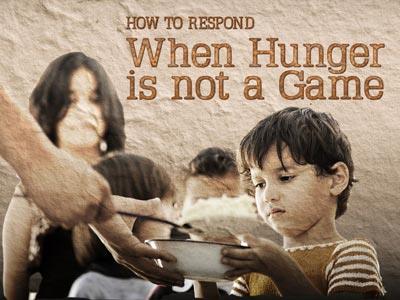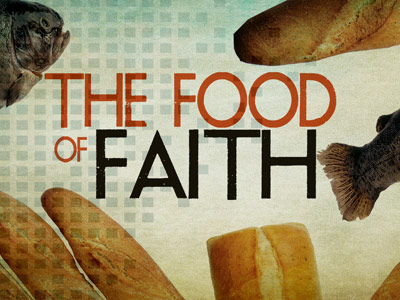-
There’s Always More
Contributed by Alison Bucklin on Jul 15, 2023 (message contributor)
Summary: Even when we feel drained physically and financially, we still need to offer what resources we do have - and in so doing, find that we can do more than we thought.
I have a lot of fellow feeling for the disciples in today’s story. I expect all of us who have put so much time and effort into VBS do, too. It’s done! We can put our feet up and have something to eat, talk about how everything went, see how well we did, maybe get a stroke or two for the old ego. And that’s how I imagine the disciples that day, coming back to report to Jesus on how their mission trip had gone, full of stories to tell and longing for that quiet evening time together to regroup and get some perspective on what had happened to them. But no. With all the people vying for Jesus’ attention, they couldn’t even stop for a bite to eat. Their reports were probably models of brevity, and deeply unsatisfying. I’d be pretty frustrated, maybe even a bit resentful.
And Jesus understood. He recognized their need to be alone with him, and so they all got in the boat to get away from the crowds, to get the food and rest and attention they needed. But it didn’t happen.
The swarm of excited fans raced around the lake and beat the boat to its destination. Who gets this kind of superstar popularity these days? Prince Harry? Taylor Swift? Elon Musk? I wonder how they’d handle having their privacy invaded as Jesus’ was? Though of course they probably have security details to make sure that it doesn’t happen in the first place. Anyway the disciples show just the kind of irritation you or I would feel in similar circumstances. But Jesus isn't annoyed at the crowds for chasing him down. Instead, he has compassion on them because they are “like sheep without a shepherd.” His first response to their need is to teach them - even though his disciples have needs as well, and a legitimate claim on his time. Why do you suppose he makes that choice? Could it be because the disciples are no longer “sheep without a shepherd?”
If I were the one writing this story, I’d have given you Jesus’ lesson plan. But Mark doesn’t do that. Instead, he describes a miraculous feeding in the desert. And in a way the disciples function as straight men; he uses their alarm at the lateness of the hour and the shortage of food to accentuate the greatness of the miracle.
I can hear them, can’t you? “Teacher, it’s late, make them go away, tell them to go get something to eat, it’s our turn to talk to you, and we haven’t eaten yet, we’ve been waiting for you, tell them to come back tomorrow.” And then Jesus says in response, “No, I’m not going to send them away hungry, you feed them!”
Mark tells us it would cost more than half a year’s wages to buy enough bread for a crowd that size, let alone a little something extra to go with it. And anyway, they didn’t have any money! Jesus had told them not to take any money on the mission trip they’ve just returned from, so how are they suddenly going to come up with the cash to feed all these people? They probably have barely enough food for themselves. Their squawking reveals that they still have no inkling that Jesus can supply whatever they need.
Their outcry is a familiar one in Scripture. Moses objected when God told him to feed the people (600,000 soldiers) for a month. “Would they have enough if flocks and herds were slaughtered for them? Would they have enough if all the fish in the sea were caught for them?” [Num 11:22] When Elisha asks his servant to feed a company of prophets, he balked, “How can I set this before a hundred men?” [2 Ki 4:43a]
The theme of hunger and feeding occurs over and over again in Scripture; this story echoes a number of Biblical themes. First is the lavishness of God’s provision.
The disciples begin with hardly anything and end up with enough to satisfy 5,000 and on top of that enough leftovers to fill twelve baskets. The miracle recalls God’s answer to Moses: “Is the LORD’s arm too short? You will now see whether or not what I say will come true for you.” [Num 11:23] And Elisha’s response to his servant, “The LORD says, ‘They will eat and have some left over.’” [2 Ki 4:43b]
This miracle also recalls the exodus of the Israelites from Egypt. Like Moses' followers, the people are in a wilderness, a place where food is not easily come by. And also like Moses, Jesus feeds the people both with new teaching and miraculous food. The image of sheep without a shepherd is one that Moses had also used: “May the LORD... appoint a man over this community to go out and come in before them... so the LORD’s people will not be like sheep without a shepherd.” [Num 27:15-17]

 Sermon Central
Sermon Central



